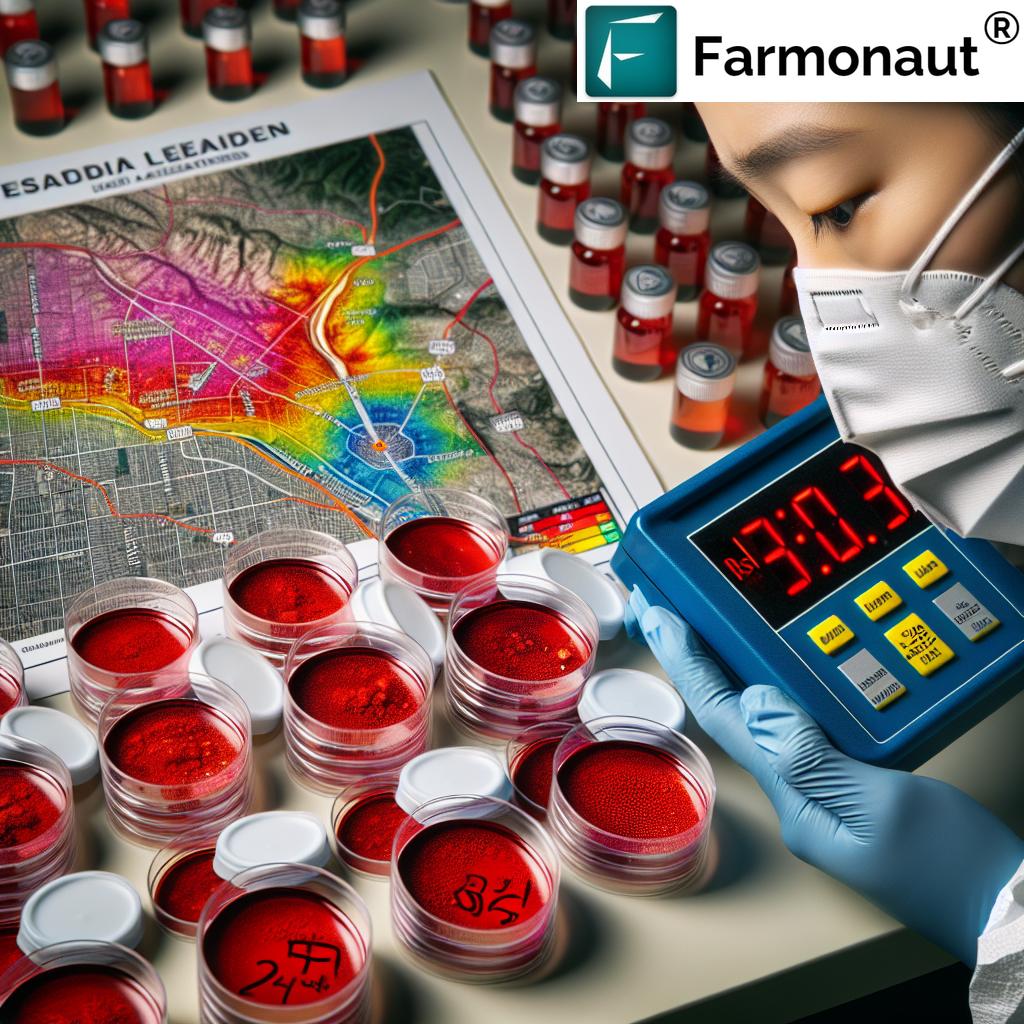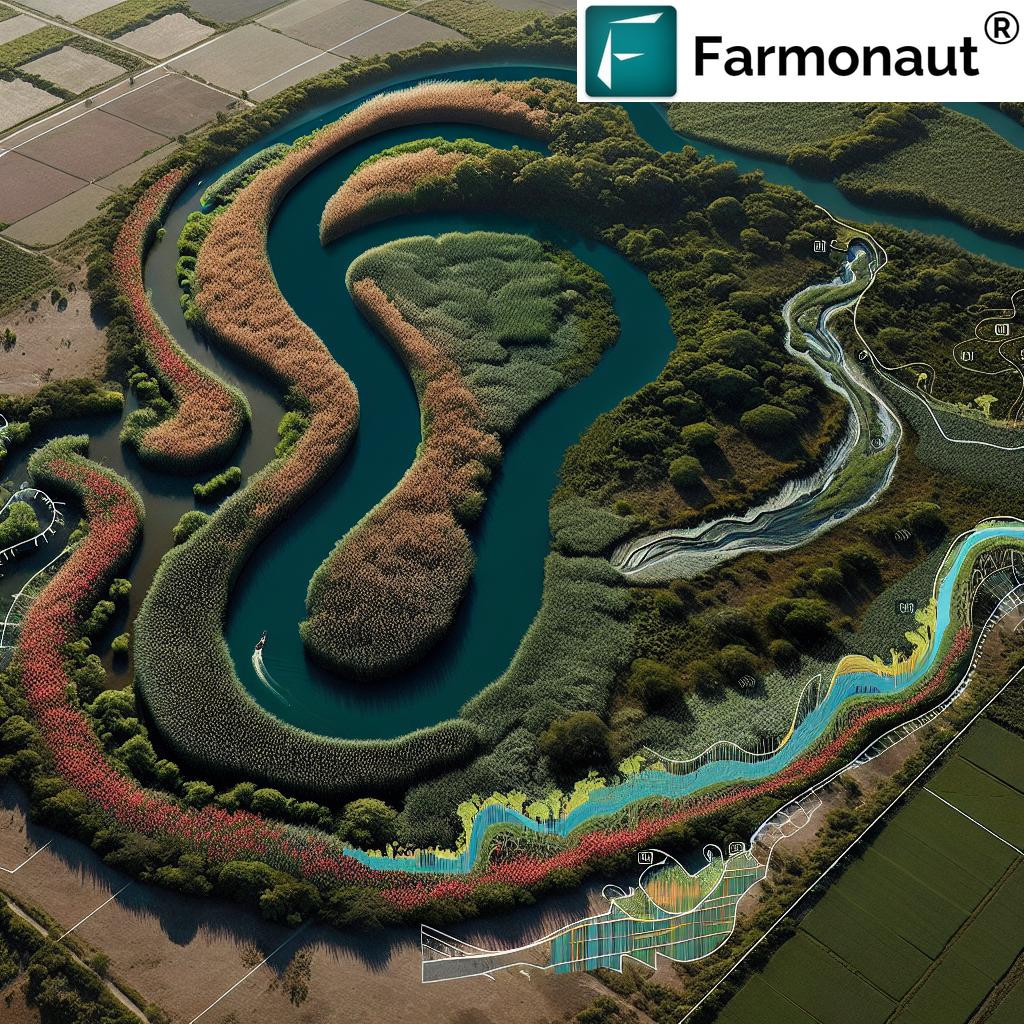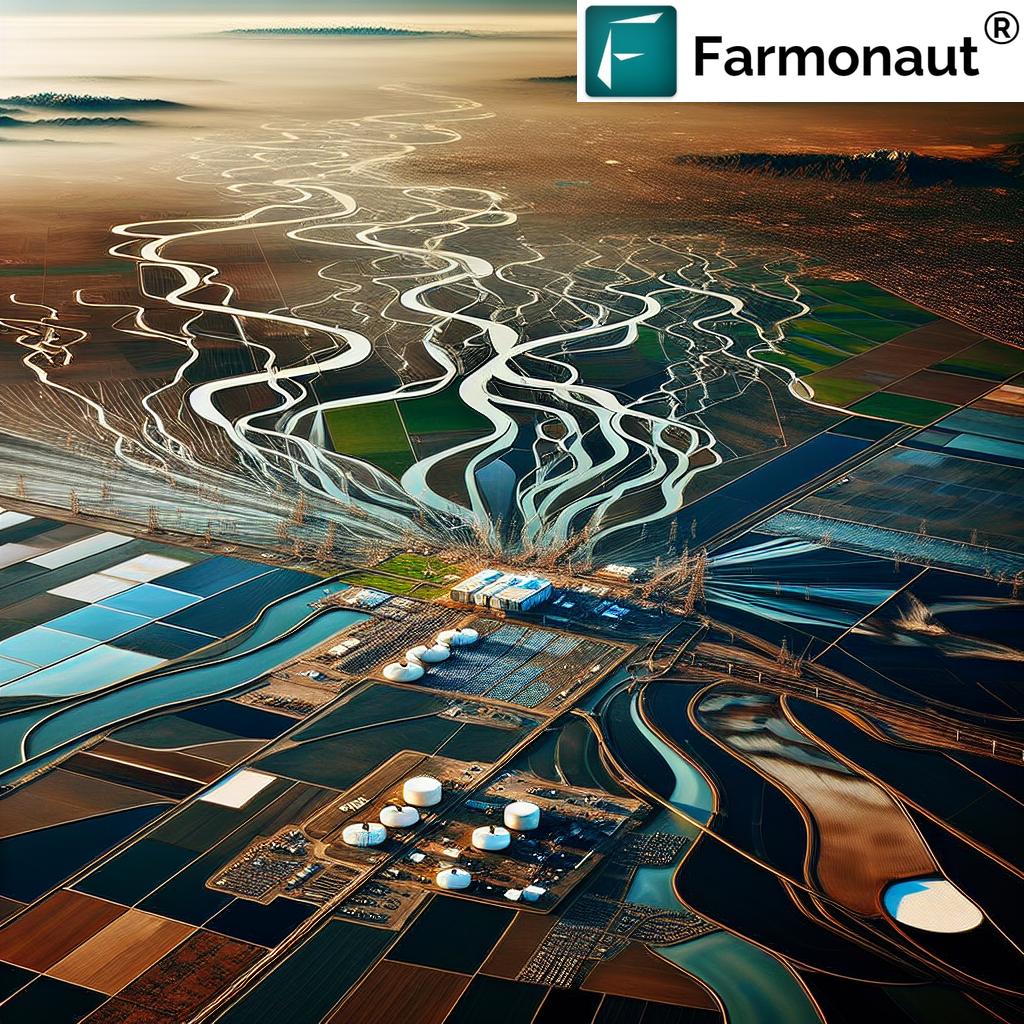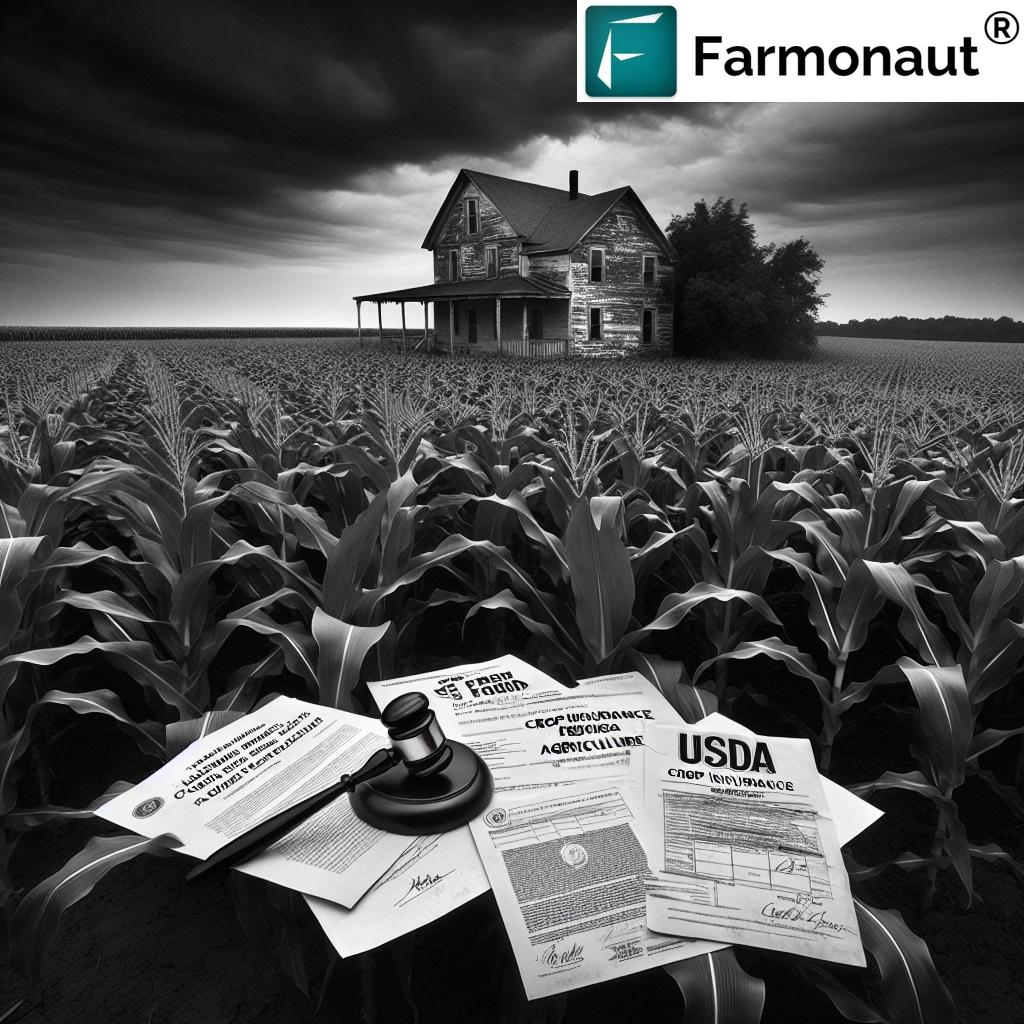Farmers Insurance Rockwall & New Orleans: 2025 Guide
“By 2025, over 82% of rural farmers in Rockwall & New Orleans will rely on tailored insurance for climate resilience.”
Table of Contents
- Introduction: The Evolving Role of Agricultural Insurance in 2025
- Understanding the Agricultural Insurance Landscape
- Region-Specific Threats: Rockwall, Texas & New Orleans, Louisiana
- Farmers Insurance Rockwall & New Orleans: Tailored Solutions for 2025
- Farm Bureau Insurance: The Cooperative Approach
- The Role of Insurance in Sustainable Agriculture
- Satellite Data and Technological Advancements: Enhancing Risk Management
- Estimated Insurance Coverage Benefits for Sustainable Farming (2025)
- Challenges & Future Outlook
- FAQ: Farmers Insurance Rockwall & New Orleans 2025
- Conclusion: A Sustainable Roadmap for 2025 and Beyond
Introduction: The Evolving Role of Agricultural Insurance in 2025
The landscape of agriculture in Rockwall, Texas and New Orleans, Louisiana is rapidly changing as we step into 2025. Whether it’s shifting weather patterns, unexpected pest outbreaks, or volatile market prices, farmers and agribusinesses face an array of risks that can threaten livelihoods, financial stability, and food security in these rural communities.
Here, insurance solutions like farmers insurance rockwall, farmers insurance new orleans, and farm bureau insurance play a pivotal role in safeguarding farm businesses. Not only do these policies offer tailored coverage for unpredictable natural and operational hazards, but they also support sustainability and environmental stewardship—protecting both the farmer’s bottom line and the greater community’s ecological health.
In this comprehensive 2025 guide, we’ll thoroughly explore these insurance providers, analyze the unique risks faced in Rockwall and New Orleans, shed light on the benefits of sustainable insurance practices, and introduce advanced solutions and technologies designed for the future of farming.
Understanding the Agricultural Insurance Landscape
Agriculture remains among the most unpredictable occupations in America, with risks heavily dependent on:
- Weather conditions—from droughts, hailstorms, and hurricanes to flash floods
- Soil health and water availability
- Pest management and disease outbreaks
- Market fluctuations and shifting commodity prices
- Sudden operational hazards (e.g., equipment breakdowns, labor shortages)
In 2025, the significance of tailored insurance policies for farmers, agribusinesses, and rural residents cannot be overstated. Leading insurers provide comprehensive coverage that addresses the full array of environmental and financial threats, from unpredictable natural disasters to commodity market shocks and more.
This agricultural insurance landscape is shaped not only by the unique geographic features of each region, but also by the cooperative approach of certain providers, the integration of remote data and AI, and the ongoing shift toward sustainable farming practices.
Region-Specific Agricultural Threats: Rockwall, Texas & New Orleans, Louisiana
To fully understand the insurance needs of Rockwall and New Orleans farmers, we must first consider the localized risks of each region:
Rockwall, Texas
- Temperate Climate: While generally milder, this region is not immune to sudden storms, droughts, and pest infestations.
- Soil Health: Soil depletion and water management are ongoing concerns as crops shift with changing markets.
- Operational Hazards: Farm machinery and equipment face wear due to intense summer and surprise winter storms.
New Orleans, Louisiana
- Hurricane-Prone Zone: Located on the Gulf Coast, New Orleans routinely faces hurricanes, flooding, and high humidity.
- Flood Risk: Proximity to rivers and wetlands requires robust coverage against frequent flood events.
- Crops and Livestock: High humidity increases risk of pest outbreaks and disease, impacting both plant and animal agriculture.
The solutions provided by farmers insurance rockwall and farmers insurance new orleans are designed to address these unique threats, catering specifically to local agricultural communities.
Farmers Insurance Rockwall & New Orleans: Tailored Solutions for 2025
Farmers Insurance has built a reputable presence in both Rockwall and New Orleans, providing customizable policies that address localized agricultural risks. Let’s examine the range of coverage and the risk management solutions on offer in 2025:
Key Insurance Products and Coverage Types
- Crop Insurance: Protection against losses due to droughts, hailstorms, pests, and fluctuating market prices.
- Livestock Coverage: Safeguards herds against disease, climate events, and theft.
- Weather Risk Protection: Comprehensive policies to guard against damage caused by unpredictable weather, including hurricanes for New Orleans and storm-related hazards in Rockwall.
- Farm Equipment Insurance: Coverage for expensive machinery, tools, and structures essential for operations.
- Standard Property & Vehicle Insurance: Bundled for greater convenience and financial stability.
- Environmental Liability: Covers costs arising from accidental environmental damage, such as chemical drift or soil contamination.
Benefits of Customizable Policies
- Policies can be tailored to address localized threats unique to the region—for example, adding flooding riders for coastal Louisiana, or extra hailstorm protection for North Texas.
- Bundling options promote affordability, offering risk management solutions for the whole farm—including crops, livestock, outbuildings, and vehicles.
- Specialized endorsements—like organic crop coverage or sustainability incentives—are now standard offerings in 2025.
With climate and market uncertainties increasing, farmers insurance rockwall and farmers insurance new orleans play a critical role in ensuring sustainability, supporting the long-term livelihoods of rural communities.
Did you know? Leading agri-insurers and financial institutions frequently use Farmonaut’s Satellite API for remote crop verification and weather data, making claims processing and risk estimation more accurate than ever before. If you’re a developer, our API documentation explains integration for real-time insurance and loan assessments.
Farm Bureau Insurance: The Cooperative Approach to Risk Management
Among insurance providers, Farm Bureau Insurance stands out through its deeply rooted, cooperative organization model. Unlike conventional insurers, Farm Bureau Insurance is affiliated with member bureaus across the states—aligning closely with the interests of farmers and uniquely attuned to the day-to-day needs and challenges faced by rural America.
The cooperative structure empowers farmers by offering not just insurance policies but also:
- Advisory services that reduce operational hazards
- Risk assessments based on local field data and community input
- Educational resources on sustainable agricultural practices
- Collective advocacy for fairer premiums and faster claims processing
By mid-2025, farm bureau insurance providers widely deploy data analytics and remote sensing for more accurate and fair risk evaluation. For example, satellite imagery—like that which we offer at Farmonaut—enables prediction of crop yield variances, helping tailor premiums based on real-time in-field risk instead of blanket regional averages.
Farm Bureau’s comprehensive suite in 2025 includes:
- Crop hail policies
- Farm liability (including new environmental regulations)
- Protection for forestry and rural property
- Sustainable farming incentives (e.g., discounts for cover cropping, efficient water use)
These advances make farm bureau insurance providers not only insurers but indispensable partners in community resilience, sustainability, and operational excellence.
The Role of Insurance in Sustainable Agriculture
By 2025, sustainable insurance policies in agricultural communities are more than just financial safety nets—they function as active vehicles for environmental stewardship and climate resilience.
How Insurance Incentivizes Sustainable Farming
- Discounts and Premium Reductions: Offered for practices like cover cropping, reduced chemical use, integration of renewable energy (solar panels, efficient irrigation, etc.).
- Soil Health and Water Management Benefits: Certain policies now incentivize projects that enhance soil organic matter or upgrade to precision irrigation systems.
- Claims Fast-Tracking: Automated through in-field remote data, rewarding farms that document sustainable practices in crop and environmental management.
- Carbon Credits and Traceability: Carbon footprint tracking solutions by Farmonaut and others help farms monetize eco-friendly investments and reduce insurance costs.
- Storm & Flood Risk Mitigation: Reduced premiums for improved flood defenses or resilient crop varieties in high-risk areas like New Orleans.
With the right insurance provider, farmers are now actively rewarded for contributing to ecosystem health, not just for protecting capital assets.
“Sustainable insurance in agricultural communities reduces financial risk from extreme weather events by up to 47% annually.”
Interested in digitizing your farm’s traceability for easier insurance and compliance? Our Farmonaut Product Traceability platform uses blockchain to provide complete product journey transparency for crops and livestock—supporting both market access and risk-backed insurance solutions.
Satellite Data and Technological Advancements: Enhancing Insurance & Risk Management
In the rapidly evolving insurance sector of 2025, satellite-based insights and AI-driven decision support have become mainstream for risk management and claims adjustment. Farmonaut is at the forefront of this transformation, making high-resolution, affordable satellite data available to farmers, businesses, and insurers alike.
Our platform delivers powerful solutions for crop health monitoring, soil condition tracking, and environmental impact reporting. Example services include:
- Satellite-Based Crop Monitoring: Detect drought stress, pest outbreaks, or flooding in real time from your phone or desktop via our Farmonaut web app and Android / iOS Apps.
- AI-Powered Insights: Our Jeevn AI system delivers field-specific advice, anticipating production risks and suggesting insurance-backed solutions.
- Blockchain Traceability: Assists with regulatory compliance and insurance claims, giving insurers trustworthy, tamper-proof evidence.
- Fleet and Resource Management: Optimize vehicle and machinery use to minimize breakage and reduce premium costs. Learn more about Farmonaut Fleet Management here.
- Large Scale Monitoring: Enterprises and government officials can monitor multiple large plots simultaneously. Our Large-Scale Farm Management Solution is ideal for bureaus and agribusinesses overseeing vast operations in Texas and Louisiana.
For those seeking easier access to insurance or agricultural loans, our crop loan and insurance services provide satellite-backed verification, reducing delays and making coverage more accessible to rural and small-scale farmers.
With real-time satellite imagery, blockchain-based traceability, and AI-powered risk models, we’re enabling rural communities in Rockwall, New Orleans, and beyond to make smarter, more sustainable insurance and farm management decisions.
Estimated Insurance Coverage Benefits for Sustainable Farming (2025)
| Insurance Coverage Type | Estimated Annual Premium ($/Acre or $/Farm) |
Estimated Payout Range ($) | Sustainability Impact | Geographic Availability | 2025 Risk Mitigation Score (1–10) |
|---|---|---|---|---|---|
| Crop Insurance (Multi-Peril, Named Peril) | $28–$54/acre | $1,000–$100,000+ | Encourages crop rotation, reduced pesticide use | Both | 8 |
| Livestock Coverage | $350–$950/farm | $1,000–$200,000+ | Promotes rotational grazing, pasture health | Both | 7 |
| Weather Risk Protection (Hurricane, Hail, Drought) | $38–$115/acre | $5,000–$500,000+ | Flood-defense installations, water savings | Rockwall: Hail, Drought New Orleans: Hurricane, Flood |
9 |
| Environmental Liability | $120–$420/farm | $10,000–$1,000,000 | Mitigates fertilizer runoff, supports wildlife habitats | Both | 7 |
| Sustainable Farming Incentives (e.g., cover cropping, solar installations) | Up to 10% premium discount | Varies (premium savings, government credits) | Reduced water use, soil carbon sequestration | Both | 8 |
| Farm Bureau Insurance Package | $1,700–$3,200/farm | $25,000–$1,000,000+ | Community-based risk pooling, sustainability discounts | Both | 9 |
Challenges & Future Outlook: Farmers Insurance Rockwall & New Orleans
Key Challenges in 2025
- Affordability and Accessibility: Although technology has reduced premium costs, many small-scale and minority farmers still find adequate insurance out of reach. Outreach via mobile apps and rural programs is a growing emphasis.
- Claims Processing Delays: Digitization is improving this, but rural broadband gaps and lack of digital literacy remain barriers for communities in remote zones.
- AI Integration: While artificial intelligence streamlines underwriting and claims, there are concerns about data privacy, algorithmic transparency, and equitable access for all agricultural enterprises.
- Climate Change & New Risks: More frequent and severe natural disasters mean that existing insurance models are under constant review. New solutions and dynamic policies are critical for resilience.
Future Outlook: Insurance as the Backbone of Rural Sustainability
- Integration of Satellite Data & Remote Verification: Real-time, affordable remote data solutions (like Farmonaut) are becoming ubiquitous, especially for small farms that previously lacked risk assessment capabilities.
- Automated, Transparent Claims: Blockchain and secure remote assessment are ensuring faster, fairer settlements, benefiting the most vulnerable operators.
- Focus on Environmental Impact: By 2030, we expect widespread adoption of insurance-linked incentives for water use, carbon footprint, and soil health.
The future of farmers insurance in Rockwall and New Orleans is increasingly tied to digital transformation, sustainability standards, and embedded climate resilience.
FAQ: Farmers Insurance Rockwall & New Orleans 2025
-
Q: What specific risks do farmers insurance policies cover in Rockwall and New Orleans?
Farmers insurance policies typically include crop loss from drought, hail, or flood (Rockwall: hail/drought; New Orleans: hurricane/flood), pest infestations, livestock disease, equipment failure, and often also specialized endorsements for sustainable/organic farming practices.
-
Q: How has insurance changed for rural agriculture in 2025?
Technology has enabled real-time risk assessment, fairer premium calculation, and rewards for adopting sustainable practices. Farmers now receive quicker claims processing and access to remote monitoring resources—making coverage more equitable and useful.
-
Q: What incentives are offered for sustainable farming through insurance?
Insurance providers in 2025 commonly offer premium discounts for cover cropping, efficient water use, reduced chemical input, and eco-certifications. Some even help monetize carbon credits or offer rebates for environmental improvements.
-
Q: How does Farm Bureau Insurance differ from conventional insurance?
Farm bureau insurance follows a cooperative approach—it’s affiliated with member bureaus, providing advisory support, education, and advocacy tailored for rural, agricultural communities. This aligns with both financial needs and community wellbeing.
-
Q: What role does satellite technology play in insurance?
Satellite technology, like that offered by Farmonaut, enables precise field monitoring for crop health, weather events, and environmental compliance. This leads to accurate risk assessment, faster claims, and even supports new types of insurance products for sustainable development.
Conclusion: A Sustainable Roadmap for 2025 and Beyond
As climate unpredictability, extreme weather, and market fluctuations define modern agriculture, insurance stands as the key pillar safeguarding both financial stability and environmental sustainability for rural communities in Rockwall, New Orleans, and across America.
In 2025, farmers insurance rockwall, farmers insurance new orleans, and farm bureau insurance providers are more than risk underwriters—they’re partners in ensuring resilient, sustainable livelihoods. The integration of customizable policies, advanced satellite monitoring, community-first bureaucratic models, and sustainability incentives heralds a new era—where both farmers and the environment thrive.
As the agricultural landscape evolves, let’s continue leveraging advanced technologies and innovative insurance solutions to build a future where every farm and rural enterprise is resilient, productive, and committed to environmental stewardship.
For questions about integrating satellite analytics, insurance claims, or optimizing your agricultural risk strategy, explore our satellite-based agricultural solutions or connect with your local insurance provider today.













